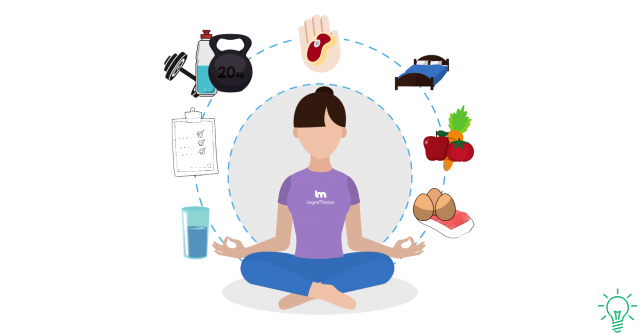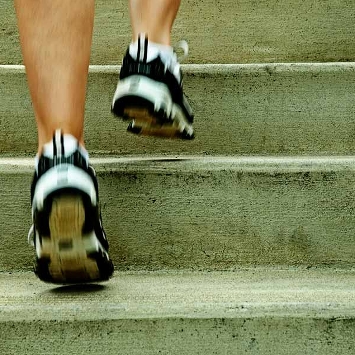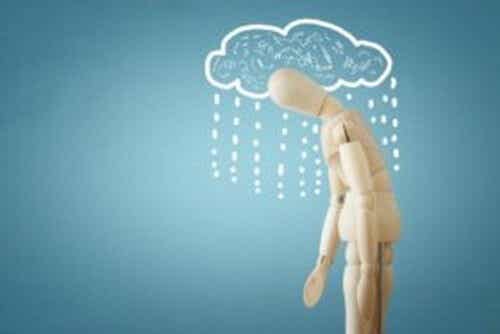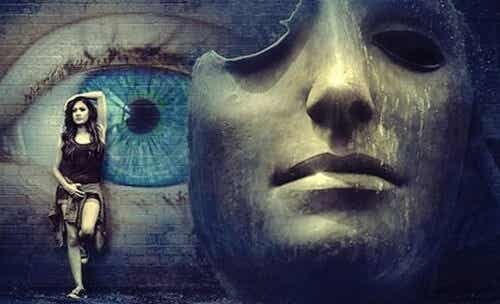An interesting study concluded that there is a link between poor quality sleep and the feeling of loneliness. How does it happen and at what level does it affect us? Is it contagious?
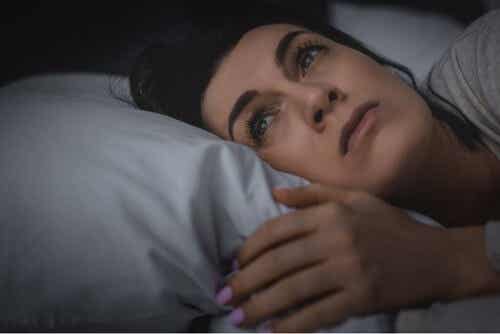
Last update: Augusts 29, 2020
The feeling of loneliness and sleep disturbances are increasingly common problems. The former has increased considerably in recent years, so much so that there is a Ministry of Loneliness in the UK. Likewise, sleeping badly has become a widespread habit all over the world.
A recent study has identified a link between the two phenomena. Apparently, sleeping badly would cause a strong feeling of loneliness. It is known that when we do not experience loneliness as a positive experience, we tend to have sleep disturbances.
Bad sleep causes an emotional storm. It is clear that lack of sleep affects our mood: makes us feel less motivated, more irascible and less able to direct and maintain attention. Research from California has shown that it can also make us feel more alone.
"Sleeping is the best meditation."
– Dalai Lama –
The University of Berkeley study
Neurologists Eti Ben-Simon and Matthew Walker of the University of California at Berkeley conducted a study on the relationship between sleeping badly and feeling lonely. The findings were published in the journal Nature Communications in 2018.
A preliminary study had already involved 140 volunteers. After a sleepless night, the volunteers said they felt isolated and had no one to talk to. These findings prompted Ben-Simon and Walker to conduct further studies.
They then asked 18 young people to sleep one night at home, without interruption, and the following day to spend a waking night in the laboratory. To prevent them from falling asleep for even a minute, they kept them engaged in a variety of activities.
Finally, they showed the young people a video of a person walking towards them, at a distance of three meters. They were asked to push a button when they felt that person was getting too close. The results showed that, on average, the sleep-deprived volunteers remained more isolated (by 15%) than another group who had slept.
Bad sleep and its effects on the brain
The researchers found the activation of an area of the brain associated with the sense of threat as the person in the video approached the camera. In other words, young people perceived the closeness of others more as a risk.
In the same way, A reduction in activities in brain areas associated with socialization was observed. This means that the motivation to interact with others decreased.
In turn, the volunteers said they felt more alone. According to the researchers, “the less we sleep, the less we want to interact with others; on the contrary, we avoid social life and this increases the interpersonal consequences caused by the lack of sleep ”.
Bad sleep and loneliness: phase two of the experiment
Ben-Simon and Walker conducted a second phase of the experiment. In this case, a thousand volunteers participated who were asked to watch a video showing the 18 young people from the previous experiment.
In each video, lasting just over a minute, each of the 18 volunteers talked about random topics, guided by a questionnaire consisting of 10 questions.
Half of the videos were recorded after a night of sleep, the other half after a night of wakefulness. Uninformed viewers of this difference watched the videos in random sequence. At the end they were asked to indicate which boy seemed the most alone in their eyes.
Most of the volunteers indicated who had not slept adding that they did not feel motivated or inclined to interact with these subjects.
The results of the study
In the last phase of the experiment, the 1000 volunteers described their feelings after watching the videos. The result is surprising: seeing someone who hadn't slept it had increased the feeling of loneliness even in the spectators.
The researchers therefore came to the conclusion that the feeling of loneliness is in a certain way “contagious". In fact, many said they felt inexplicably lonely after seeing a sleep-deprived person in the video.
The bottom line is that poor sleep predisposes people to socialization in a negative way. It also triggers a feeling of rejection in others. But there is good news: it only takes one night of sleep for these effects to wear off.











